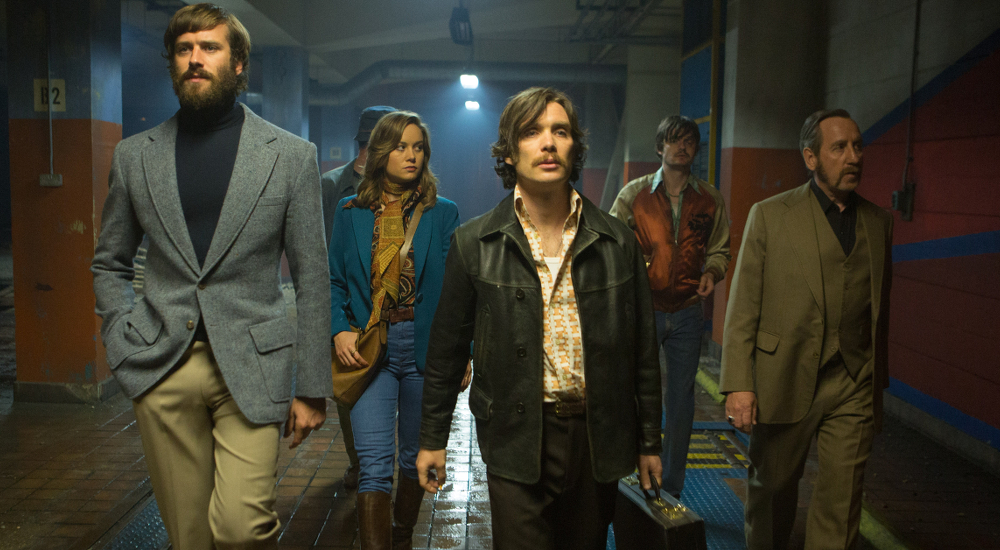“Fuck the small talk. Let’s buy some guns.”
Late one evening in 1978 two groups of men (and a single woman) enter an abandoned Boston warehouse to complete a guns deal. When shit hits the fan they all proceed to blast both the building and each other into bits and pieces. The heavily choreographed gun fight is presented in real time, allowing audiences to tag along on an intense and unexpectedly comedic journey from crazy - though brilliant - British filmmaker Ben Wheatley.
Brie Larson, coming off an Oscar win for her performance in Room, serves as the lone female presence within the film as she finds herself surrounded by guys whose guns serve as an obvious extension of their extremely fragile ego. For all intents and purposes the groups are evenly split, with Ord (a heavily bearded Armie Hammer) serving as the arrogant, smooth talking middle man. One side wants the guns, the other side has them. But when 30 assault rifles are set to change hands, as well as the fact that everyone in the warehouse is packing, something is bound to go wrong…and it does.
Though the conflict isn’t so much about the guns as an individual’s personal life (and how it conflicts with a member of the opposing side), the bullets quickly begin firing and Wheatley takes both the story and the action up a notch. But don’t be fooled, Free Fire is not an action film. It also is not a horror film. Instead, its a clever mix of comedy and drama; one that refuses to take itself too seriously as it pays homepage to the B-movies of the 1980s, complete with a stylistic nod to director Quentin Tarantino.
Though an initial wound leaves a man down with his brains oozing out of his head, for the most part the injuries sustained during the bullet exchange are not that serious. Ricocheted ammunition appears to be the most harmful as the copper skips off the steel racks and piles of rocks, making any shot possibly someone’s last. The bickering back and forth provides a wealth of comic relief as Hammer proves to be the diamond in the rough amongst his castmates. The dialogue itself is far from perfect; however, Hammer finds a way to deliver it with a sense of charm and carisma. The same can be said for Sing Street star Jack Reynor. Both men take what they are given and run with it, creating the ultimate one-two punch that lifts the film during its otherwise forgetful moments.
As the film wages on and the motive behind each of our players becomes more apparent, the story evolves. While some want nothing more than to carry the briefcase full of money out the door, others are in hopes of merely making it out of the warehouse alive. And still there are those who see the towering concrete rubble as the perfect distraction to seek personal vengeance. But no matter the rationale, the film itself rarely skips a beat, proving that originality isn’t everything - execution is fairly important as well. And let’s not forget the power of John Denver’s “Annie’s Song”.

